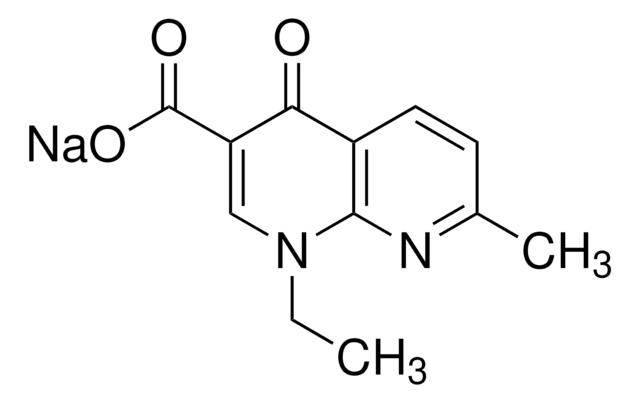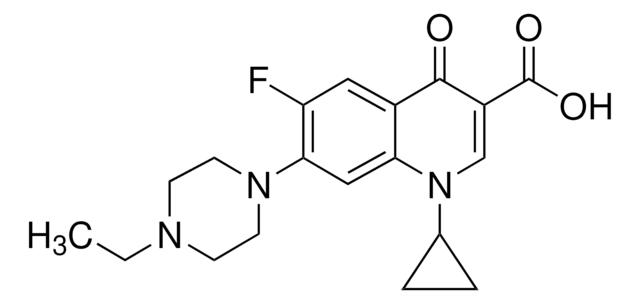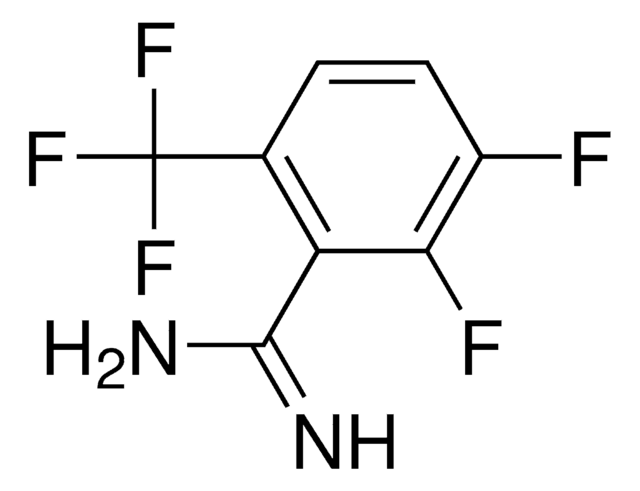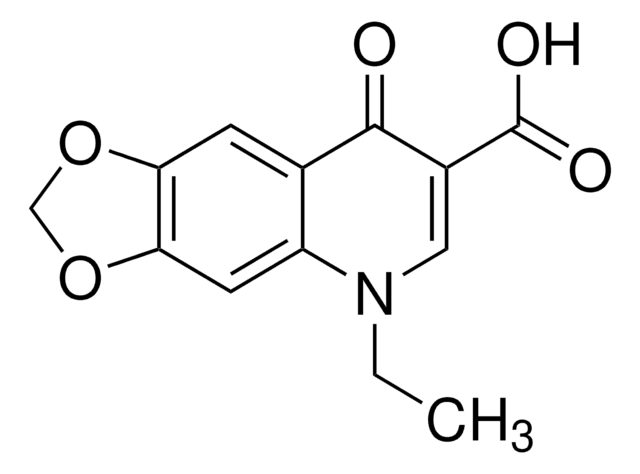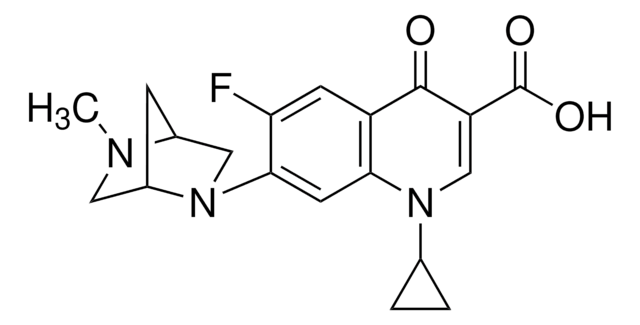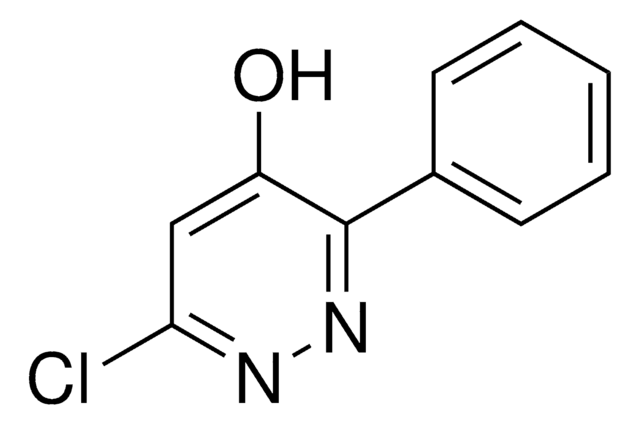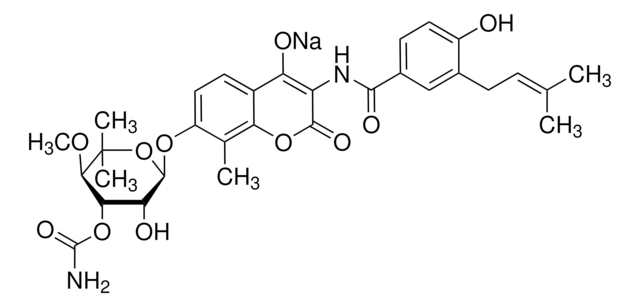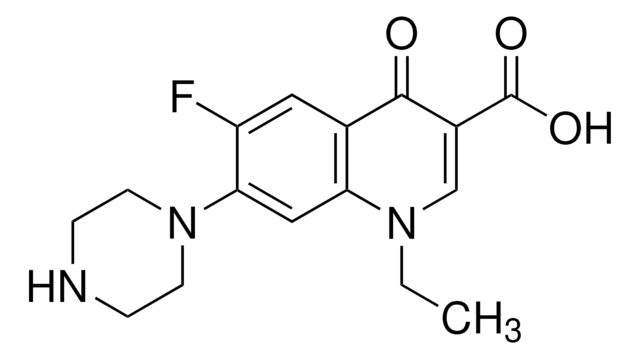Wichtige Dokumente
97023
Nalidixinsäure
analytical standard
Synonym(e):
1,4-Dihydro-1-ethyl-7-methyl-1,8-naphthyridin-4-on-3-carbonsäure, 1-Ethyl-1,4-dihydro-7-methyl-4-oxo-1,8-naphthyridin-3-carbonsäure
About This Item
Empfohlene Produkte
Qualität
analytical standard
Qualitätsniveau
Assay
≥97.0% (TLC)
≥99.0% (T)
Haltbarkeit
limited shelf life, expiry date on the label
Methode(n)
HPLC: suitable
gas chromatography (GC): suitable
mp (Schmelzpunkt)
227-229 °C (lit.)
Anwendung(en)
clinical testing
Format
neat
Lagertemp.
2-8°C
SMILES String
CCN1C=C(C(O)=O)C(=O)c2ccc(C)nc12
InChI
1S/C12H12N2O3/c1-3-14-6-9(12(16)17)10(15)8-5-4-7(2)13-11(8)14/h4-6H,3H2,1-2H3,(H,16,17)
InChIKey
MHWLWQUZZRMNGJ-UHFFFAOYSA-N
Suchen Sie nach ähnlichen Produkten? Aufrufen Leitfaden zum Produktvergleich
Allgemeine Beschreibung
Anwendung
Verpackung
Empfohlene Produkte
Signalwort
Warning
H-Sätze
Gefahreneinstufungen
Acute Tox. 4 Oral - Carc. 2
Lagerklassenschlüssel
11 - Combustible Solids
WGK
WGK 3
Flammpunkt (°F)
Not applicable
Flammpunkt (°C)
Not applicable
Hier finden Sie alle aktuellen Versionen:
Besitzen Sie dieses Produkt bereits?
In der Dokumentenbibliothek finden Sie die Dokumentation zu den Produkten, die Sie kürzlich erworben haben.
Kunden haben sich ebenfalls angesehen
Unser Team von Wissenschaftlern verfügt über Erfahrung in allen Forschungsbereichen einschließlich Life Science, Materialwissenschaften, chemischer Synthese, Chromatographie, Analytik und vielen mehr..
Setzen Sie sich mit dem technischen Dienst in Verbindung.
